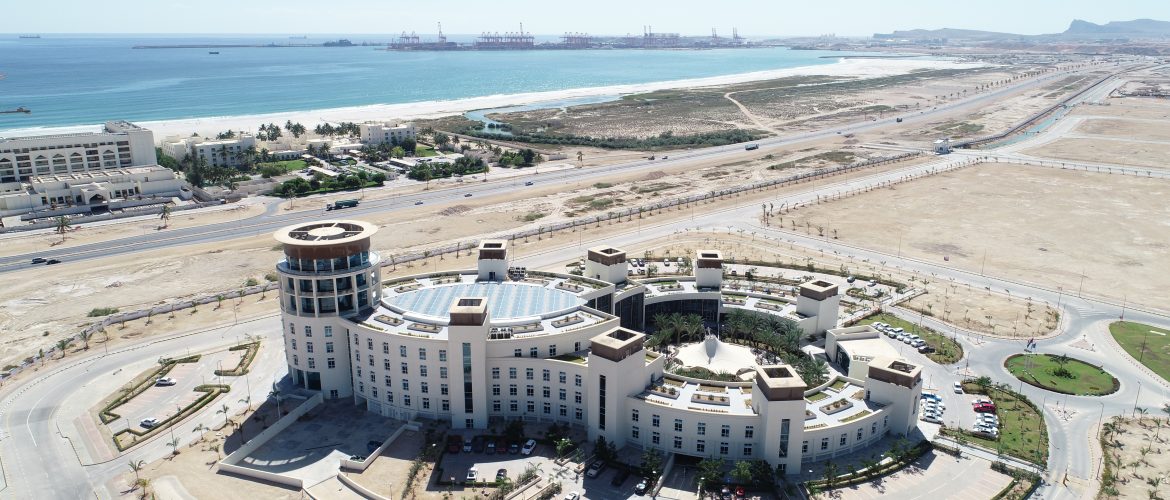Salalah Free Zone
Several reasons point to the development of a significant pharmaceutical industrial hub in the free zone adjacent to the Port of Salalah, a major transshipment and logistics for pharmaceutical companies hub with views of the Indian Ocean. The port is ideally positioned on important international shipping routes that connect the Sultanate to all of the world’s leading markets.
Salalah Free Zone (SFZ) is a hub for the pharmaceutical industry due to the zone’s supportive infrastructure and proximity to major ports of Oman. OPAZ has put together a committee that includes representatives from concerned authorities to investigate the feasibility of establishing and growing pharmaceutical companies in the Salalah Free Zone.
Investors can also take advantage of existing and proposed free trade agreements (FTAs) with advanced economies like the US, the European Union, and other countries and pacts worldwide. The port’s capable multimodal transportation and supply chain infrastructure bodes well for this effort.
Salalah Free Zone investors can take advantage of competitive access to raw materials generated by regional petrochemical facilities, as well as accessibility to temperature-controlled warehouses, in addition to shorter transit times to major markets around the globe.
Why are Logistics companies flourishing?
Many factors have recently aided the progress of Oman’s transportation and logistics infrastructure to enhance Oman’s capacity to compete with other Middle Eastern companies and possibly serve as a vital logistics hub.
The Port of Salalah, a hub for the shipping companies in Oman, has quietly remained one of the region’s major integrated ports since its inception in 1998. It has advanced seven places from last year’s position to 44th in 2020 in the prestigious list of the world’s top 100 container ports. The port’s performance is evaluated in 2020 based on the previous year’s results. In 2019, the Port of Salalah handled 4.1 million TEU containers, up 21.4% from 3.38 million TEUs the last year. As previously said, it benefits from its available location on Oman’s southern coast, which connects India and the East with Africa.
Salalah Free Zone (SFZ) has announced that the second package of logistic warehouses, totaling 25,000 square meters, has been completed. The facility will provide substantial support to the Sultanate’s logistics sector, improve global supply lines with innovative solutions, and provide investment opportunities for domestic and foreign businesses. The depots and new facilities are notable for their high capacity, economical operating costs, and architecture that meets the needs of all types of clients in the future.
Two key initiatives for 2040 in the services sector have been developed: logistics and tourism.
By 2040, the Sultanate of Oman Logistics Strategy (SOLS) 2040 aspires to accomplish five objectives:
1) to increase their contribution to GDP by more than nine times in real terms,
2) to increase their contribution to employment by more than ten times (300,000 workers),
3) to rank among the top 5-10 in relevant trade and logistics rankings,
4) to be perceived as a Regional and Global Logistics Hub
5) to be perceived as a global logistics hub (2030).
A variety of improvements are required to achieve these objectives. Exploring new markets through discovering business prospects, increasing awareness of Oman’s logistics potential, and exploiting existing and new free trade agreements are all likely to help Oman’s logistics sector grow dramatically. Trade facilitation, or the simplification of administrative and customs procedures, is expected to improve the flow, speed, dependability, and consistency of operations and Omani logistics perceptions.
How do Logistics companies in Oman benefit from Pharmaceutical Industry?
The industry has long viewed pharmaceutical distribution as a subject that requires integration and has boundless appeal. And pharmaceutical logistics isn’t only about importing, selling, storing, or distributing drugs. Increase processing capacity, reduce goods sorting errors, reduce inventory and distribution times, lower logistics costs, boost service levels and capital utilization efficiency, and achieve automation, information, and efficiency.
In the logistics industry, pharmaceutical transport is a high-end business scenario. It has a better profit margin and stability than traditional logistics. Almost all pharmaceutical items must be kept at a specific temperature throughout transportation from the origin point to the destination. The goal of temperature control is to ensure that the drugs are beneficial to the patients taking them. If the temperature at which pharmaceutical items are stored is incorrect, they can degrade.
Conclusion
The Pharmaceutical industries established at Salalah would require great support from the shipping and logistics companies in Oman. Thus the logistics sector can experience a rise in business. It is quite an encouraging moment as logistics for pharmaceutical companies is a need rather than an option.










